Metro
Nigeria’s Supreme Court begins hearing of appeals against Tinubu’s victory
Published
1 year agoon
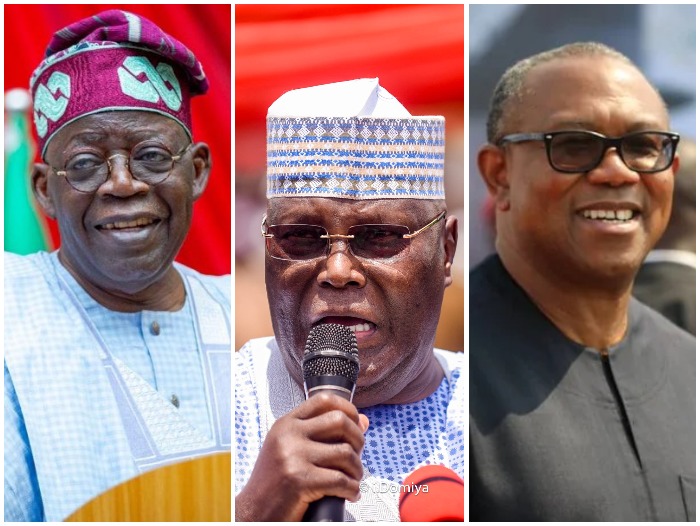
The Nigerian Supreme Court will today, Monday, October 23 begin hearing of appeals filed by three opposition parties seeking to nullify the electoral victory of President Bola Tinubu in the February 25 presidential election.
The appeals were filed by the presidential candidates of the Peoples Democratic Party (PDP), Atiku Abubakar, and Peter Obi of the Labour Party (LP), as well as the Allied Peoples Movement (APM).
The Supreme Court had last week Thursday put the three parties on notice on the date it would begin hearing on the appeals filed by the opposition parties that were dissatisfied with the ruling at the Presidential Election Petitions Court (PEPC) and the verdict of the Appeal Court.
The contending parties, which faulted the verdicts, had filed motions at the Supreme Court on different grounds, all seeking to nullify Tinubu’s victory.
On his part, Atiku and the PDP are seeking the court’s permission to tender fresh evidence on Tinubu’s academic records which he obtained from the Chicago State University (CSU), which he claims showed that the documents the president submitted to the Independent National Electoral Commission (INEC) prior to the election were forged.
Atiku had also accused the PEPC of reaching a decision based on “gross misconstruction and misrepresentation of provisions of both the 1999 Constitution, as amended, and the Electoral Act, 2022.”
Atiku further argued that some of the “presiding officers that personally handled the BVAS machines at different polling units on the election day, had in their testimony before the PEPC, confirmed the non-transmission of results of the presidential election electronically from the BVAS machines, whereas results of the National Assembly election that held simultaneously, were electronically transmitted without difficulty.”
On his part, Obi had argued that the PEPC panel erred in law and thereby reached a wrong conclusion when it dismissed his petition.
He had accused the PEPC of wrongly evaluating the proof of evidence he tendered before it, arguing that it had “occassioned a grave miscarriage of justice” when it held that he did not specify polling units where irregularities occured during the election.
Obi faulted the PEPC for dismissing his case on the grounds that they did not specify the figures of votes or scores that were allegedly suppressed or inflated in favour of President Tinubu and the APC.
The APM’s appeal which is also seeking to nullify the election of Tinubu, was based on the APC fielding of Vice President Kashim Shettima as Tinubu’s running mate when he was not validly nominated by the party.
According to the APM, Tinubu had nominated a placeholder in the person of Ibrahim Masari, but he was not replaced within the 14 days stipulated by Section 33 of the Electoral Act.
APM had also argued that going by sections 131 and 142 (1) of the 1999 Constitution, as amended, the issues were “inextricably linked and neither can be confined as a pre-election matter, as these qualifications are condition precedents to being elected to the office of President.”
The party is, therefore, asking the Supreme Court to nullify and void all votes scored by APC in the presidential election, as well as directing INEC to return the second-highest score at the election as the winner of the presidential contest.
You may like
-


‘Pray for leaders to serve you diligently,’ President Tinubu tells Nigerians
-


Nigeria on the right path despite hardship, criticism— President Tinubu
-


Ghana’s Supreme Court dismisses suit challenging anti-LGBT bill
-
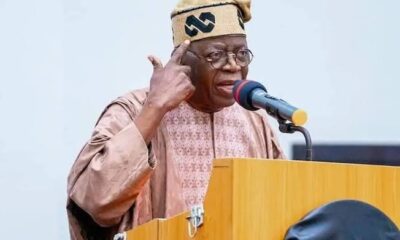

‘I don’t take pleasure in causing you pains,’ Tinubu tells Nigerians amid hardship
-
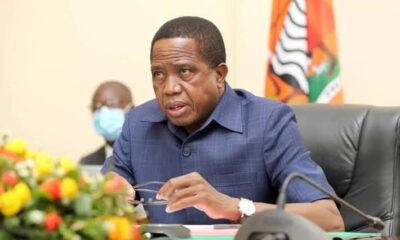

Zambia: Ex-President Lungu alleges political manipulation after barring from 2026 poll
-
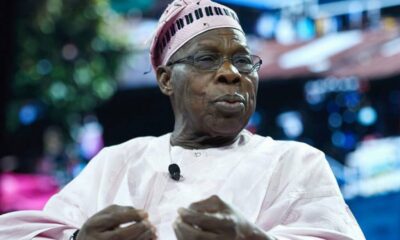

Start anti-corruption war from the top, former President Obasanjo tells Nigerian govt
Metro
‘Don’t start what you can’t finish’, ex-Nigerian official replies President Tchiani
Published
3 weeks agoon
December 29, 2024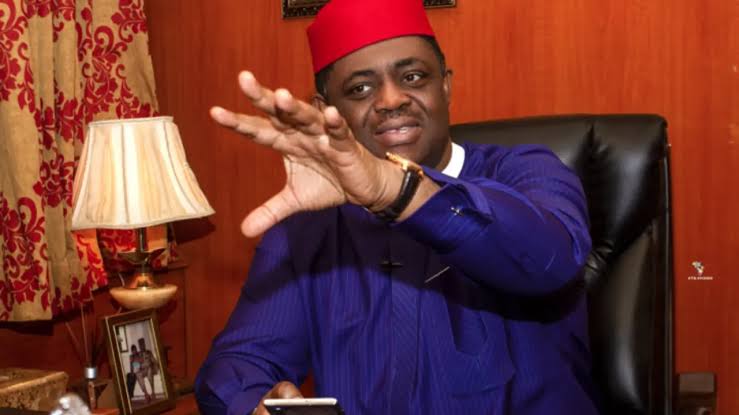
Former Nigerian Aviation Minister, Femi Fani-Kayode, has told President Abdourahamane Tchiani of Niger Republic to refrain from making infantile and puerile allegations that Nigeria is conniving with France and the Lakurawa terrorists to destabilize his country.
Tchiani had, during an interview with Radio-Télévision du Niger on December 25, accused the Nigerian government of using the sect, with the help of foreign security forces notably from France, to wreck havoc in his country, insinuating that President Bola Tinubu had been paid by the France government to allow their military to establish a base in Borno State.
He also alleged that Nigeria, acting in collaboration with the French government and the terrorist group, was responsible for an attack on the Niger-Benin oil pipeline on December 13, 2024, in Gaya, Dosso Region of Niger Republic.
But in a statement he posted on his official X handle on Sunday, Fani-Kayode who is popularly called FFK, said Nigeria does not need the help of France and thr Lakurawa terrorist to destabilize Niger Republic.
FFK insisted that Nigeria is not part of the western powers sponsoring terrorists organizations to wretch havoc on the West African sub region.
“If Nigeria wanted to destabilise Niger Republic, I do not believe that we would need France or any terrorist organisation to do so,” the politician wrote.
He noted that on the contrary, western powers are the ones behind terrorist organizations operating in the region and other parts of Africa.
“I have maintained that the western powers are behind the terrorist groups that have plagued the West African sub region over the last 15 years and for the last ten years I have publicly stated this and given my reasons.
“I am equally certain that Nigeria, being one of the major victims of these terrorist organisations, has had no part in it and that no Nigerian President, past or present, has indulged in such grave and dangerous actions.”
He went on to advice Tchiani against provoking Nigeria with unguarded and infantile utterances capable of stoking Nigeria against his country.
“The Nigerien Military Head of State, Abdourahamane Tchiani, would do well to be careful not to provoke our wrath with his absurd assertions and remain mindful of the fact that the defence budget for his country, Mali and Burkina Faso COMBINED is not up to 25% of Nigeria’s.
“Tchiani’s grave allegations that President Tinubu and NSA Nuhu Ribadu have been bought by the French to destabilise Niger Republic, that our Government is jointly sponsoring a terrorist group with France to do same and that there are French military bases in Nigeria are infantile, puerile, mendacious and asinine.
“It is a squalid attempt by the Nigerien Head of State to sow the seeds of dissention in our country, to alienate our people from constituted authority, to divide our people and to undermine the Tinubu administration,” he added.
“It is also highly provocative and the FG should consider the possibility of taking other more extreeme measures if this reckless provocation continues.
“We are under no obligation to show restraint when we are being undermined and maligned.
Metro
Zambia announces second case of Mpox as country battles cholera outbreak
Published
4 weeks agoon
December 28, 2024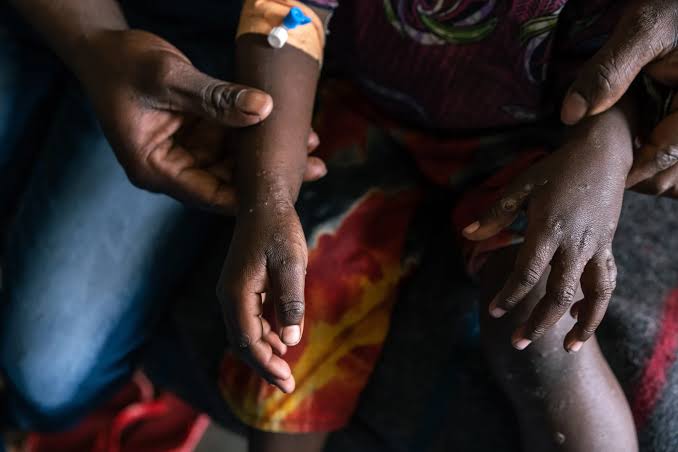
The Zambian Ministry of Health has reported a second case of Monkeypox, popularly known as Mpox, in Kitwe region of Copperbelt Province.
Acting Health Minister, Douglas Syakalima, who made the announcement on Friday during a press conference in Lusaka, revealed that the Ministry is intensifying contact tracing and surveillance to curb further spread of the disease.
Syakalima who also addressed the ongoing cholera outbreak in Nakonde, Muchinga Province, said thus far, seven cases have been confirmed.
“The second Mpox case involves a 34-year-old female from Ndeke, Kitwe, who presented with symptoms including rash, fever, swollen lymph nodes, and oral ulcers on December 21,” Syakalima said at the press parley.
He noted that there was an initial misdiagnosis with chickenpox in Lumwana, North-Western Province, but laboratory tests on December 26 confirmed that it was Mpox.
Syakalima added that the patient’s husband, who works in a neighboring country with confirmed Mpox cases, had experienced similar symptoms earlier this month.
“Both patients are now stable and under close monitoring. A rapid response team has been deployed to trace contacts and prevent further spread,” he said, adding that eight close contacts of the couple are currently under observation, while nationwide surveillance has been heightened.
The Health Minister added that on December 26, five cholera cases were confirmed at Nakonde Urban Clinic with the first three patients, a husband, wife, and their son, admitted on December 24 with symptoms of diarrhea, vomiting, dehydration, and shock.
“Today, two more cases have been reported, bringing the total to seven confirmed cholera cases from the same household,” Syakalima stated.
He explained that Nakonde’s location as a border town with high cross-border movement poses a risk for the disease to spread to other parts of the country.
The Minister however, assured that the Ministry has deployed teams to trace contacts, chlorinate water sources, disinfect affected homes, and activate Incident Management Systems at district and provincial levels while surveillance has been heightened, and contact tracing is ongoing for 33 individuals.
“The government remains committed to preventing further spread of these diseases,” Syakalima assured.
EDITOR’S PICK


Nigeria: Marketers predict further price cut as another refinery begins operations
Oil marketers and the Nigerian Midstream and Downstream Petroleum Regulatory Authority expect refined petroleum product prices to reduce as another...


Kenya: Consumer inflation rises to 3.0% from 2.8%
Kenya’s statistics agency said on Tuesday that Kenya’s consumer price inflation increased slightly to 3.0% year-over-year in December from 2.8%...


South Africa’s Transnet’s half-year deficit hits $117m
Transnet, a state-owned logistics company in South Africa, announced on Tuesday that it had lost 2.2 billion rand ($117.48 million)...


Nigeria, China extend $2bn currency swap deal
A 15 billion yuan ($2 billion) currency-swap arrangement between China and Nigeria has been extended to boost investment and commerce...


Egypt’s central bank maintains overnight rates
As anticipated, Egypt’s central bank has maintained its overnight interest rates, stating that although inflation was predicted to drop significantly...


Illicit flows cost Nigeria, others $1.6bn daily— AfDB
According to the African Development Bank (AfDB), illicit money flows and profit shifting by multinational corporations doing business in Africa...


‘Don’t start what you can’t finish’, ex-Nigerian official replies President Tchiani
Former Nigerian Aviation Minister, Femi Fani-Kayode, has told President Abdourahamane Tchiani of Niger Republic to refrain from making infantile and...


Again, Starlink raises prices of its services in Nigeria
Elon Musk’s satellite internet service provider, Starlink, has again jacked up the prices of its services in Nigeria after an...


Former President of Moroccan club Raja sentenced to 3 years in prison
The former President of Moroccan top club, Raja Casablanca, Mohamed Aouzal, has been sentenced to three and a half years...


Zambia announces second case of Mpox as country battles cholera outbreak
The Zambian Ministry of Health has reported a second case of Monkeypox, popularly known as Mpox, in Kitwe region of...


